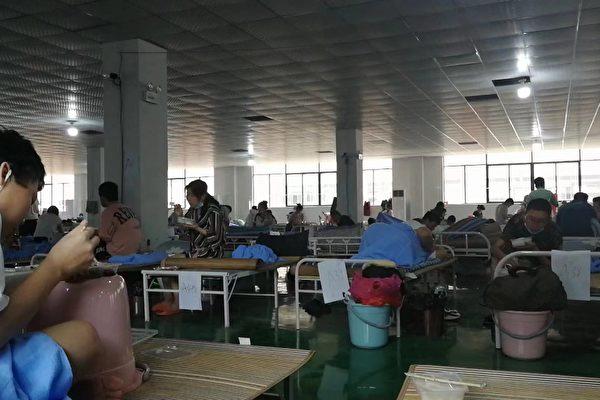The beds are close to each other with no partition to separate them. A number is written on the bed rail instead of the name of the patient.
Men and women, young and old, live together in a crammed space. Some patients don’t have a bed; they lie on the floor.





